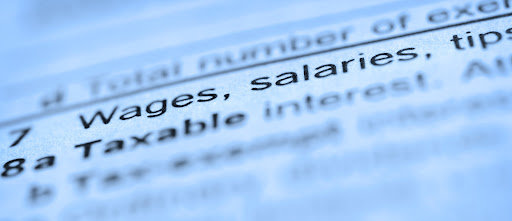How are Lost Wages Determined After a Car Accident?

If you’ve been in a car accident, you’ve likely missed some work to recover from your injuries. It’s possible that you’re still out of work, or even that you’ll be unable to work for weeks, months, or even years. Thankfully, the average number of missed days is much lower than that—around 11 missed work days—but with so many Americans living paycheck to paycheck, even a week out of work can be devastating.
When you have mounting medical bills, property damage costs, and the other expenses related to the crash itself in addition to your lost wages from a car accident, you might be unsure where to turn. Thankfully, Louisiana has a process through which you can pursue damages for your lost wages from the liable party in your accident. Here’s everything you need to know about how lost wage damages are calculated in car accident cases.
What Are Lost Wages?
The money that you could have earned, if not for your car accident injuries, comprises your lost wages. Typically, these are only the money you could have earned from the time of your injury until you’re compensated, either through a settlement or verdict. The lost wage damages you could be awarded include the work hours you missed
- due to a stay in a hospital or other medical issues
- due to a recovery period at home
- due to a mental health crisis, such as PTSD, anxiety, or depression, caused by your accident
Usually, victims of car accident injuries can recover these damages from the liable party in their accident, or from an insurance claim. While lost wages refer only to compensation from work hours you’ve missed, your car accident claim can also include other damages, such as medical bills and lost earning potential.
Calculating Lost Wages from a Car Accident
In many cases, calculating lost wages is fairly straightforward, though if you’re self-employed, it’s more complicated. An experienced car accident injury lawyer will be able to help you calculate the lost-wage damages in your case.
For Those Employed with Companies
If you’re employed by a third party, figuring out your lost wages is fairly simple, though the math is slightly different depending on whether you’re hourly or salaried:
Hourly workers simply need to calculate the number of hours of work they missed and multiply it by their wage. For example, say you have to miss four days of work due to a car accident. If you make $20 an hour, your lost wages come to $20 × 4 days × 8 hours per day = $640.

Salaried workers have a similar equation. First, calculate your hourly pay by dividing your yearly salary by the number of workday hours you work each year (usually 2080, or 40 hours per week × 52 weeks per year). Then, multiply that hourly pay by the number of missed hours.
For example, say you missed a week of work (5 days) due to a car accident, and you make $48,000 a year. Your hourly wage is $48,000 ÷ 2080 working hours = $23.08 an hour, which multiplied by the 40 hours (5 days × 8 hours per day) you’ve missed yields $923 in lost wages.
In either case, lost wages do not need to account for sick or vacation days, since you were forced to take those days due to another’s negligence and should still receive compensation for them.
To prove your lost wages, you’ll need a Wage Verification Form from your employer, as well as pay stubs or tax returns, medical records, and hospital receipts. Each of these documents can help prove how long you were out of work and provide evidence for your lost wages claim.
For the Self-Employed
If you’re self-employed, proving lost wages will be more difficult. Your time away from work could lead to lost clients and opportunities in addition to your lost salary. In addition, since self-employed workers are their own bosses, their salary structures tend to be complex as business needs change, making the lost wages calculation much more complex.
This is why it’s imperative to hire an experienced car accident attorney if you’re self-employed. Not only will they help you with proving your lost wages—they’ll also help deflect claims that the lost income was due to factors not related to the injury, as well as help you through all the documentation to prove your side of the story.
What Is Lost Earning Potential?

If your injury has left you with a temporary or permanent disability that makes you unable to work, you can be compensated for your lost earning potential, also called reduced earning capacity. Proving a loss of future possible earnings is much more complicated than proving lost wages, since it deals with years into the future. Usually, expert witnesses such as doctors or forensic analysts need to testify on any potential amounts. A personal injury lawyer can help you navigate this complex area of your personal injury claim.
Why You Need a Car Accident Lawyer
If you’ve been the victim of a car accident, you need a dedicated advocate for your financial interests, so you can focus on healing from your injuries and moving on with your life. The passionate lawyers at Gordon McKernan Injury Attorneys have over 679+ years of combined legal experience representing victims of car accidents, so we know what it takes to get you the compensation you deserve.
You shouldn’t face the aftermath of a car accident injury alone: call Gordon McKernan today at 888.501.7888 for a free consultation about your case and your legal options. We’ll get started right away on calculating your lost wage damages, as well as damages for pain and suffering, lost earning capacity, medical treatment costs, and more. Get Gordon today to begin your journey to healing from your injuries and moving on with your life.

